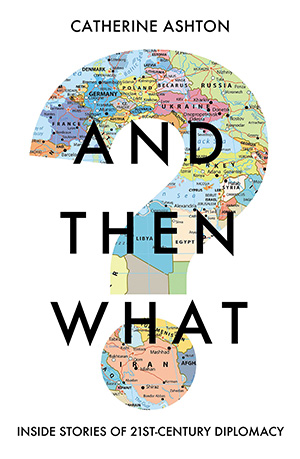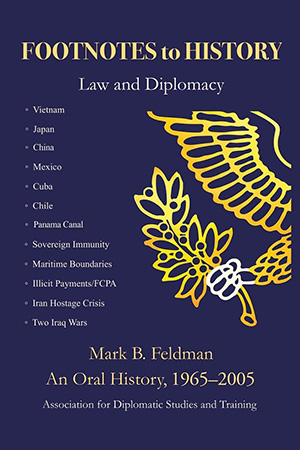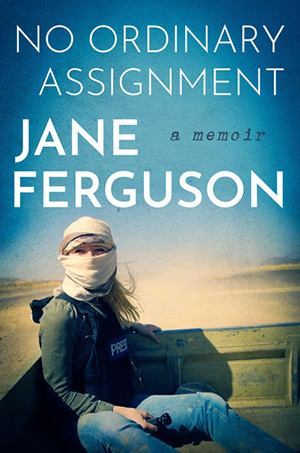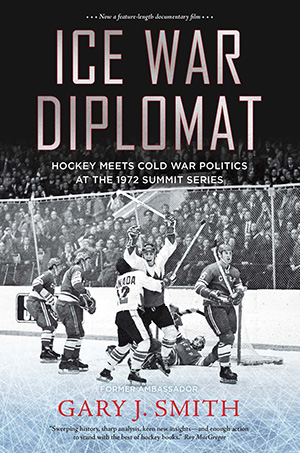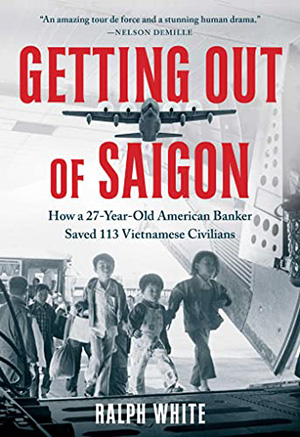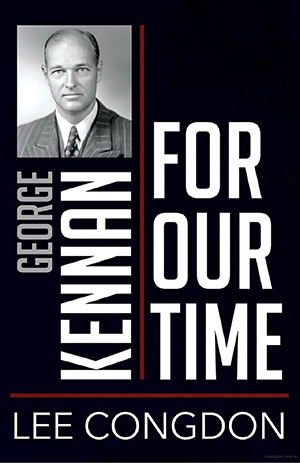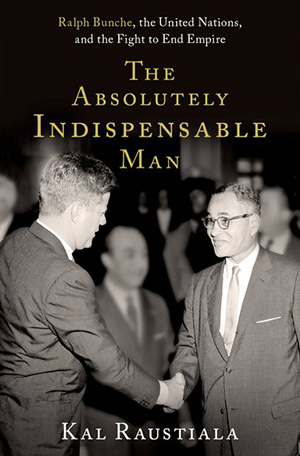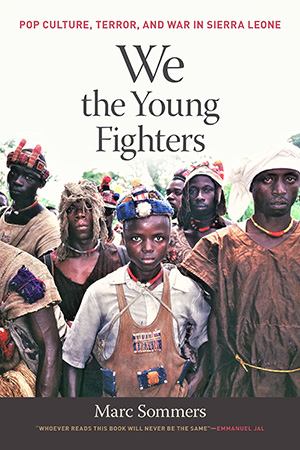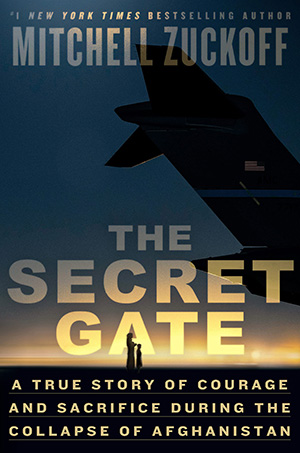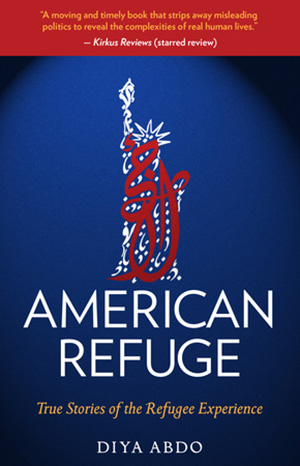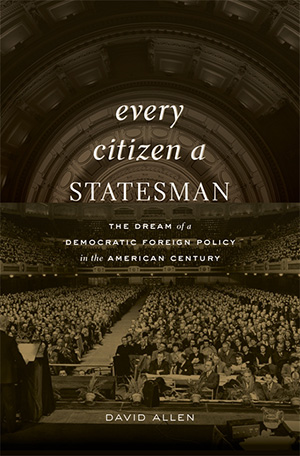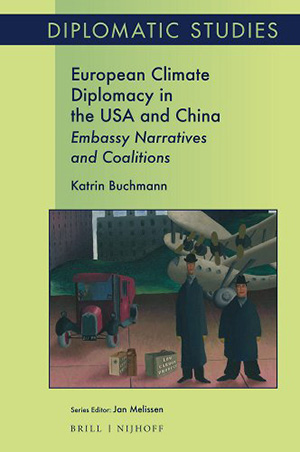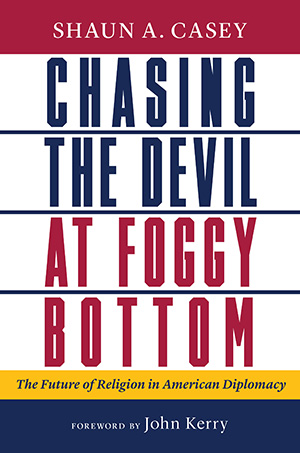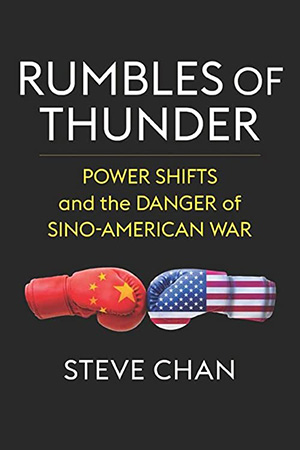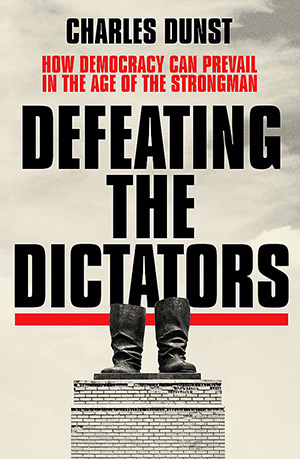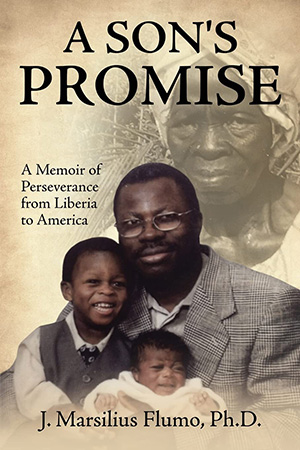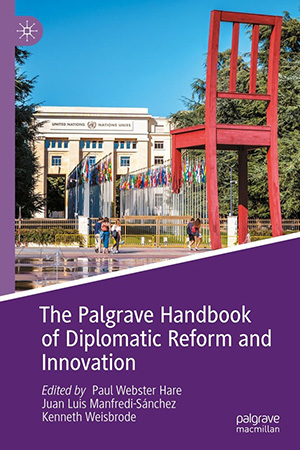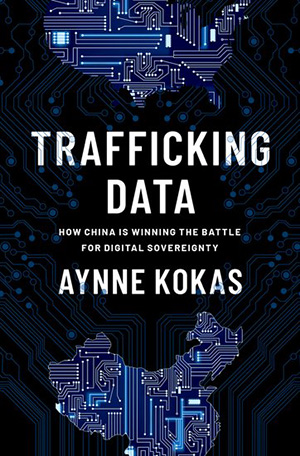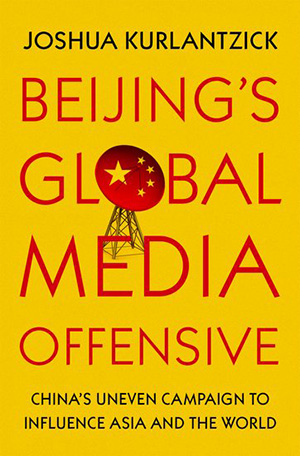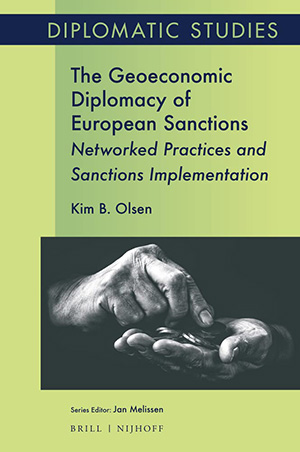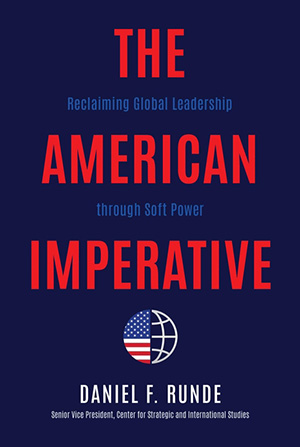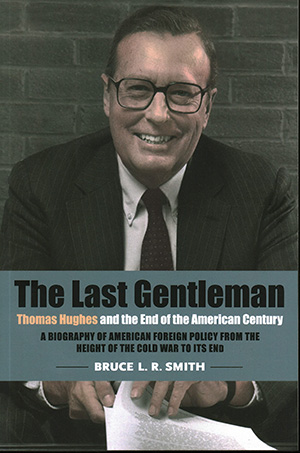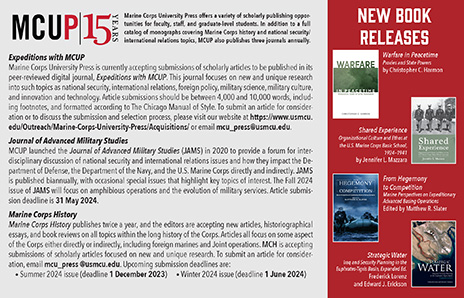Of Related Interest
Recent books of interest to the foreign affairs community.
And Then What?: Inside Stories of 21st-Century Diplomacy
Catherine Ashton, Elliott & Thompson, 2023, $29.95/hardcover, e-book available, 256 pages.
Baroness Catherine Ashton wrote this book, she explains, because “I wanted to describe what it was really like to be in the middle of events as an ordinary person given an extraordinary role to play.” Indeed, as the European Union’s first High Representative for Foreign Affairs and Security Policy, Ashton had one of the best seats at the table, working to find collaborative solutions to all manner of global crises.
Though the pace was relentless and the press could be hateful, the work itself was satisfying, and in seeing the worst the world could offer, she also witnessed acts of bravery and kindness that gave her hope and moments of joy. Ashton worked with such State notables as John Kerry, Hillary Clinton, and Bill Burns to negotiate historic settlements (think Iran nuclear deal). Her story offers insight into what went on during such critical negotiations, along with her thoughts on the tools diplomats need to succeed in today’s world.
Catherine Ashton served as the E.U.’s first High Representative for Foreign Affairs and Security Policy from 2009 to 2014. She is a distinguished scholar at the Woodrow Wilson International Center for Scholars in Washington, D.C., and a consultant to the Geneva-based Centre for Humanitarian Dialogue.
Footnotes to History: Law and Diplomacy
Mark B. Feldman, Xlibris, 2023, $17.99/paperback, e-book available, 270 pages.
In 2021 the Association for Diplomatic Studies and Training sat down with retired FSO Mark Feldman. From that interview came Feldman’s memoir, Footnotes to History: Law and Diplomacy.
Born in 1935, Feldman went to work for the State Department in 1965, not long after graduating in “one of the strongest classes to graduate from Harvard Law,” because he naively hoped to help “solve the Vietnam War.” He joined the department as a GS-14 Civil Service staff attorney and served until 1985, working on issues including the war in Vietnam, the Iran hostage crisis, and Iraq wars. Feldman shares recollections about Richard Nixon, Jimmy Carter, and Henry Kissinger. He also discusses meeting war criminal Klaus Barbie, actress Tippi Hedren, and Prince Bandar, Saudi Arabia’s ambassador to the U.S. from 1983 to 2005.
Mark B. Feldman served in the State Department Office of the Legal Adviser from 1965 to 1981, including as deputy legal adviser and acting legal adviser (1974-1981). He taught foreign relations law at Georgetown University Law Center and has worked in private practice since 1981.
No Ordinary Assigment: A Memoir
Jane Ferguson, Mariner Books, 2023, $29.99/hardcover, e-book available, 336 pages.
In No Ordinary Assignment, Jane Ferguson chronicles her journey from awkward teen living on a farm in rural Ireland to award-winning international war correspondent. She learned to overcome fear under fire—surviving a terrorist attack on a hotel in Kabul, sneaking into Syria at the height of the civil war, and watching children die of starvation in Yemen—all while navigating her own fear that she wasn’t good enough for the career she chose.
The book gets deeply personal as Ferguson tries to make a romantic relationship work, struggles to pay her bills on a freelancer’s salary, and yearns for approval from her mentally unstable mother, all placed in the context of the conflicts she is sent to cover. Foreign Service readers will recognize many of the places where she travels and works—Cairo, Kabul, Sana’a, Dubai, Mosul, and more—though not a regional security officer in the world would have let embassy staff take the risks Ferguson takes to tell her war stories.
Jane Ferguson is a special correspondent for PBS NewsHour and a contributor to the New Yorker. She has won an Emmy Award, a Peabody Award, the George Polk Award, and the Aurora Humanitarian Journalism Award for her reporting.
Ice War Diplomat: Hockey Meets Cold War Politics at the 1972 Summit Series
Gary J. Smith, Douglas & McIntyre, 2022, $26.95/paperback, e-book available, 336 pages.
A first-tour Canadian diplomat in Moscow in 1972, Gary Smith was tasked with supporting the Canadian-Soviet hockey series, one that was in danger of falling apart due to political differences between Canada and the Soviets. In this compelling memoir, he tells the story of how he came to join his country’s Foreign Service after a childhood mostly spent in small Canadian towns, where he first developed both his interest in international affairs and his love of hockey.
Smith’s experience taking the Canadian Foreign Service entrance exams—both written and oral, like the entrance exams into the U.S. Foreign Service—and the lengthy wait he endured to find out if he’d be offered a job will sound familiar to U.S. diplomats. Soviet and Russia scholars will find his descriptions of serving in 1970s Moscow fascinating. And hockey fans will appreciate his descriptions of the behind-the-scenes bickering over referees and the minute-by-minute accounts of the actual matches—eight games in all were scheduled, and it took a nailbiting final match on the ice in Moscow to determine the victor.
Before retiring in 1998, Gary Smith served as Canadian ambassador to Indonesia. After retirement, he worked as executive consultant for the film “Ice-breaker.” He currently lives in Perth, Ontario.
For former AFSA President Eric Rubin’s review of Ice War Diplomat, see the May 2023 FSJ.
Getting Out of Saigon: How a 27-Year-Old American Banker Saved 113 Vietnamese Civilians
Ralph White, Simon and Schuster, 2023, $28.99/hardcover, e-book available, 320 pages.
In early 1975, Ralph White was a 27-year-old bank manager at the Saigon branch of Chase Manhattan Bank. He’d transferred there at the behest of his boss, who tasked him with closing the branch if it appeared that Saigon was in danger of falling to the North Vietnamese army.
When White arrived in Saigon, senior managers warned him that the city was about to fall and urged him to evacuate the entire staff, plus all their family members. White wasn’t sure what he was allowed to do, but he knew what the right thing to do was. He tells readers exactly how he did it in Getting Out of Saigon.
White talked about the experience in a conversation with writer D.Z. Stone that appeared in the July-August 2023 FSJ. Asked if he considers himself a hero, Stone reports, White flinched and said: “The heroes were the Foreign Service officers who defied U.S. policy and their delusional ambassador, risking their careers and their own lives to evacuate thousands of at-risk Vietnamese who had worked for Americans.”
Ralph White spent the majority of his career in the finance industry, working with several banks in Vietnam, Japan, Thailand, Hong Kong, and New York City. After retirement, he turned to writing. In 2009 White founded the Columbia Fiction Foundry, a creative writing workshop for alumni of Columbia University, where he earned his MBA.
Remaking the World: Decolonization and the Cold War
Jessica M. Chapman, The University Press of Kentucky, 2023, $30.00/paperback, e-book available, 316 pages.
For most people, the Cold War calls to mind images of Soviet weaponry or the Berlin Wall. But in Remaking the World, historian Jessica Chapman looks not at the nuclear arms race of the Cold War era but at the connection between the Cold War and decolonization across the globe between 1945 and 1965. During those two decades, more than 50 nations declared independence from their colonizers.
Chapman begins where World War I ends, with the collapse or weakening of numerous powerful empires that had thrown their armies into the war. She then looks closely at events that bubbled up in the aftermath of that war in six separate countries: India, Egypt, the Congo, Vietnam, Angola, and Iran, explaining how shifting policies in the United States, the Soviet Union, China, and Cuba influenced their fight to decolonize. Finally, she examines the role of the United Nations and regional actors, as well as policy changes in the post–Vietnam War era.
Jessica Chapman is a professor of history at Williams College and the author of Cauldron of Resistance: Ngo Dinh Diem, the United States, and 1950s Southern Vietnam (2013).
George Kennan for Our Time
Lee Congdon, Northern Illinois University Press, 2022, $19.95/paperback, e-book available, 232 pages.
Every Foreign Service member today knows—or should know—of George Kennan’s larger-than-life stature in the world of foreign policy. A Soviet expert, Kennan almost single-handedly convinced the Washington establishment to adopt a Cold War–era strategy of containment of the Soviet Union with his fabled “Long Telegram,” a 1946 cable he sent to the State Department from his post in Moscow.
In George Kennan for Our Time, historian Lee Congdon delves into Kennan’s early life and upbringing, which led directly to his interest in, and talent for, diplomacy. Congdon then outlines Kennan’s contributions to the field and lays out his philosophies regarding international relations and nonintervention beyond his more well-known work in the Soviet bloc, including Kennan’s call for revival of religious faith and a return to early American ideals.
Lee Congdon is a professor emeritus of history at James Madison University and the author of multiple books, including Seeing Red (2001) and Solzhenitsyn (2017).
George Kennan for Our Time was reviewed by Joe Novak in the March 2023 issue of The Foreign Service Journal.
The Absolutely Indispensable Man: Ralph Bunche, the United Nations, and the Fight to End Empire Kal Raustiala, Oxford University
Kal Raustiala, Oxford University Press, 2022, $34.95/hardcover, e-book available, 688 pages.
In 1950 Ralph Bunche became the first Black American to win the Nobel Peace Prize. Yet, he is not as well known as many other diplomats of his era, with many of his achievements lost to history. In The Absolutely Indispensable Man, Kal Raustiala sets out to right this wrong.
Raustiala takes readers through Bunche’s early life in Los Angeles, to Harvard, where Bunche became the first Black man to earn a Ph.D. in political science, and on to the State Department and the United Nations. As one of the principal architects of the U.N., Bunche negotiated the first peace treaty between Israel and neighboring Arab countries, and Raustiala maintains that Bunche is responsible for the U.N.’s role as a peacekeeping—not only peacemaking—institution.
Kal Raustiala is a professor of comparative and international law and the director of the Ronald W. Burke Center for International Relations at the University of California, Los Angeles. He is also the author of The Knockoff Economy: How Imitation Sparks Innovation (2012).
For reviews of The Absolutely Indispensable Man by Ambassador (ret.) Jim Dandridge and Alexis Ludwig, see the September 2023 FSJ.
We the Young Fighters: Pop Culture, Terror, and War in Sierra Leone
Marc Sommers, University of Georgia Press, 2023, $32.95/paperback, e-book available, 488 pages.
In October 2000, Marc Sommers was in The Gambia to interview refugees from Sierra Leone. When he asked them to talk about their experiences fleeing a brutal war in their homeland in 1999, many recollected that the perpetrators of horrible crimes against civilians were devotees of hip-hop musician Tupac Shakur, considering their Tupac T-shirts to be uniforms and tying American flags around their heads, Rambo-style. The refugees mentioned other pop culture icons as well, including Bob Marley, whose song “Get Up, Stand Up” was used as a rebel fight song.
The experience led Sommers to write We the Young Fighters, which delves into the ways pop culture can radicalize young people a world away but can also be used to reach otherwise alienated youth and to push for government reform.
Marc Sommers is the author of 10 books, including Stuck: Rwandan Youth and the Struggle for Adulthood (2012) and The Outcast Majority: War, Development, and Youth in Africa (2015). He has a Ph.D. from Boston University and currently works as an international consultant with a focus on youth, peacebuilding, education, and security.
The Secret Gate: A True Story of Courage and Sacrifice During the Collapse of Afghanistan
Mitchell Zuckoff, Penguin Random House, 2023, $28.99/hardcover, e-book available, 336 pages.
Although it reads like a thriller, The Secret Gate tells the true story of Foreign Service Officer Sam Aronson and Afghan writer and women’s rights advocate Homeira Qaderi in the early days of the Taliban takeover of Afghanistan in August 2021.
Sam, a former Diplomatic Security agent turned FSO, volunteered to join the State Department team helping with the evacuation of more than 100,000 American and Afghan civilians from Kabul Airport. Homeira, a poet and single mother of a young son, was an outspoken critic of the Taliban, making her a target of the new regime. When her literary agent contacted Sam, the young FSO agreed to help Homeira and her son escape through a secret entrance to the airport.
Mitchell Zuckoff is a professor of narrative studies at Boston University. He has won the PEN/Winship Award for Nonfiction, the American Society of Newspaper Editor’s Distinguished Writing Award, and The Livingston Award for International Reporting. He is the author of numerous nonfiction books, including 13 Hours: The Inside Account of What Really Happened in Benghazi (2014) and Fall and Rise: The Story of 9/11 (2019).
See the May 2023 FSJ for Ambassador (ret.) Michael McKinley’s review of The Secret Gate.
American Refuge: True Stories of the Refugee Experience
Diya Abdo, Steerforth Press, 2022, $16.95/paperback, e-book available, 176 pages.
In American Refuge, Diya Abdo, herself the child of refugees, shares the stories of seven refugees from around the world who found their way to the United States. They came reluctantly from Burma, Burundi, Iraq, Palestine, Syria, and Uganda, and are now building new lives far from home with the help of Every Campus A Refuge (ECAR), an organization founded by Abdo.
Abdo chronicles the lives of these refugees before they were forced to flee their homes, the persecution they suffered along the way, and their experiences in camps and as they resettled. The book’s cover illustration was created by one of them, an artist who escaped two assassination attempts in Iraq before relocating to the U.S.
Diya Abdo, a U.S. immigrant, was born in Jordan to Palestinian refugees. An activist and English professor at Guilford College, Abdo founded Every Campus a Refuge to leverage university resources to provide temporary shelter to refugee families. She won the 2021 J.M.K. Innovation Prize for her work with ECAR. Her article on ECAR appears in this edition.
Every Citizen a Statesman: The Dream of a Democratic Foreign Policy in the American Century
David Allen, Harvard University Press, 2023, $45.00/hardcover, e-book available, 344 pages.
Founded in 1918, the Foreign Policy Association, one of the first international relations think tanks, soon began to organize nationwide popular discussion groups under the slogan: “World Affairs Are Your Affairs.” This civic involvement was a far cry from today’s seemingly disinterested populace, as seen every four years during national elections, in which, David Allen notes, foreign policy is hardly discussed at all.
In Every Citizen a Statesman, Allen traces the path from an early 20th-century democratic foreign policy, when, he claims, U.S. citizens believed they had a civic duty to stay involved and informed, to today’s cloistered and elitist “establishment,” which rarely factors the will of the people into its decision-making.
David Allen is a historian and former fellow at the Belfer Center for Science and International Affairs at the Harvard Kennedy School. He has taught at the Jackson Institute for Global Affairs at Yale University, and his research appears in the International History Review and the Journal of Cold War Studies. He also writes regularly for The New York Times.
European Climate Diplomacy in the USA and China: Embassy Narratives and Coalitions
Katrin Buchmann, Brill Nijhoff, 2022, $185.00/hardcover, e-book available, 528 pages.
Much has been written about international efforts to slow the rate of climate change. Here, Katrin Buchmann takes a narrow approach in examining the issue, focusing specifically on the efforts of several European embassies in 2007-2014 to change domestic politics through their diplomatic networks, forging alliances to increase the chance of success in international negotiations.
Buchmann makes it a point to differentiate between diplomacy and foreign policy. She notes that foreign policy researchers typically ignore the work of embassies: “For this reason, I wanted to figure out what role European embassies play in the E.U.’s climate diplomacy and how effective they are.” Because China and the United States are the biggest emitters of carbon, Buchmann focuses on them specifically as she works to understand the effectiveness of European diplomatic efforts to curb emissions.
Katrin Buchmann earned her Ph.D. in politics and international studies from the University of Cambridge. She currently works on renewable energy in East Africa.
Chasing the Devil at Foggy Bottom: The Future of Religion in American Diplomacy
Shaun A. Casey, Eerdmans Publishing, 2023, $30.00/hardcover, e-book available, 269 pages.
While church and state are understood to be necessarily separate in the United States, in Chasing the Devil at Foggy Bottom, author Shaun Casey argues that to build a successful foreign policy platform, diplomats need to understand the crucial role religion plays in the field, including in conflict resolution, human rights, and sustainable development.
A longtime colleague of former Secretary of State John Kerry—who wrote the foreword—Casey joined the State Department under Kerry as special representative for religion and global affairs and the first director of the department’s Office of Religion and Global Affairs. With this experience and expertise, Casey writes of the need to move beyond the typical focus on securing religious freedom and countering violent extremism, which he believes led to such foreign policy disasters as the misguided decision to invade Iraq in 2003. He argues instead for a research-based approach to policy decisions around religion.
Shaun Casey is a senior fellow at the University of Virginia and a Pulaski Institution nonresident fellow. He was previously director of the Berkley Center for Religion, Peace and World Affairs and a professor in the Walsh School of Foreign Service at Georgetown University. Casey is the author of The Making of a Catholic President: Kennedy vs. Nixon 1960 (2009) and co-editor of The Oxford Handbook of Political Theology (forthcoming).
Rumbles of Thunder: Power Shifts and the Danger of Sino-American War
Steve Chan, Columbia University Press, 2022, $32.00/paperback, e-book available, 336 pages.
You’ve likely read in numerous reputable outlets—including this one—that China is on the rise, presenting a serious threat to the American economy and the global balance of power. In Rumbles of Thunder, Steve Chan argues that claims of a “rising China” are alarmist and untrue.
According to Chan, the shifting balance of power noted by diplomats and other China watchers does not mean war is on the horizon. Chan believes that China is not striving to upend the global order and that the United States is not in decline, as other authors have claimed. In fact, he argues, American structural advantages will endure, allowing the U.S. to retain its status as the only global superpower “for at least several decades.”
The biggest flashpoint Chan sees in the relationship between China and the West is Taiwan. While “we have not yet reached a situation reminiscent of the Cold War,” he believes the tense relations between Washington and Beijing have led to “increasing investment in military capabilities and decreasing economic interdependence,” which could trigger a Sino-American confrontation.
Steve Chan is College Professor of Distinction Emeritus at the University of Colorado, Boulder. He is also the author of Trust and Distrust in Sino-American Relations: Challenge and Opportunity (2017); Thucydides’ Trap? Historical Interpretation, Logic of Inquiry, and the Future of Sino-American Relations (2020); and Contesting Revisionism: China, the United States, and the Transformation of International Order (2021) .
Defeating the Dictators: How Democracy Can Prevail in the Age of the Strongman
Charles Dunst, Hodder & Stoughton, 2023, £25.00/hardcover, e-book available, 448 pages.
Unfortunately for U.S. diplomats, after the Jan. 6 insurrectionists stormed the U.S. Capitol, it felt exponentially more difficult to extol the virtues of democracies and fight autocratic tendencies abroad. In Defeating the Dictators, Charles Dunst argues that autocrats around the world, including in Russia and China, are becoming more powerful, making this a dangerous time for democracies. Further, he writes, “beating the drum for liberal values and economics abroad while these same principles appear to struggle at home will do us no good.”
Dunst calls for a “no-bullshit approach to the future,” urging Americans to take a hard look at both our own failures and the successes of other countries so that we can band together and defeat the dictators. He points to Singapore, a stable and thriving autocracy, saying any attempt to sell democracy as an ideal to such a country is “doomed to fail.” His book is intended as a road map to reinstitute the basics of good governance in democracies before autocracies take any more ground.
Charles Dunst is deputy director of research and analytics at The Asia Group, a fellow at the Center for Strategic and International Studies, and a contributing editor at American Purpose. His articles have appeared in The New York Times, The Atlantic, The Washington Post, and Foreign Policy. A former foreign correspondent, Dunst holds degrees from the London School of Economics and Hamilton College.
A Son’s Promise: A Memoir of Perseverance from Liberia to America
J. Marsilius Flumo, Bitterroot Mountain Publishing, 2021, $19.95/paperback, e-book available, 550 pages.
J. Marsilius Flumo’s memoir is a tribute to his mother, whom he credits with pushing him to a successful future even though it required numerous sacrifices on her part. Flumo writes of his upbringing in rural Liberia and of the tragedies that marked the lives of his parents and grandparents, including the murder of his grandfather at the hands of vengeful villagers.
The book offers a view into tribal relationships, beliefs, and conflicts. Flumo’s early childhood is interesting in that it is so very different from a typical American childhood. His mother finds a way to send him to a private Catholic school to pursue his education, changing his trajectory for the better. From there he goes to the University of Liberia, where he experiences discrimination because of his status as an indigenous “country boy.” Flumo eventually finds work with USAID in Monrovia, escapes Liberia during the civil war in 1990, and ultimately becomes a U.S. citizen.
J. Marsilius Flumo teaches at John R. Rogers High School in Spokane, Washington. He worked as a locally engaged staff member with USAID in Monrovia from 1989 to 1990. He has a Ph.D. in educational leadership from Gonzaga University.
The Palgrave Handbook of Diplomatic Reform & Innovation
Edited by Paul Webster Hare, Juan Luis Manfredi-Sánchez, and Kenneth Weisbrode, Palgrave Macmillan, 2023, $219.99/hardcover, e-book available, 775 pages.
This handbook opens with the premise that “diplomacy is a neglected global issue” that is nevertheless a public good in need of nurturing. The 40 scholars and practitioners from more than 30 countries who contributed to the handbook offer their ideas for ways to innovate, improve, and reform the practice of diplomacy.
Contributors examine the effects of the “digital revolution” on diplomacy as they look at various global organizations and ministries that must be reformed to meet the needs of this new, connected world. Most of the rules of diplomacy were established more than six decades ago, they write, and so organizations like the United Nations need updating; a role also must be found for tech-focused companies.
Paul Webster Hare was a British diplomat for 30 years and the British ambassador to Cuba from 2001 to 2004. He is a senior lecturer in international relations at Boston University. Juan Luis Manfredi-Sánchez is a visiting professor at the Walsh School of Foreign Service at Georgetown University and a full professor at University of Castilla-La Mancha, Spain. Kenneth Weisbrode is an assistant professor of history at Bilkent University in Türkiye; co-founder of the Network for New Diplomatic History; and co-editor of the journal Diplomatica.
Trafficking Data: How China Is Winning the Battle for Digital Sovereignty
Aynne Kokas, Oxford University Press, 2022, $27.95/hardcover, e-book available, 360 pages.
You’ve probably heard by now that your kids’ TikTok dances are a threat to U.S. national security. But the threat to national security extends far beyond TikTok. In Trafficking Data, Aynne Kokas looks at how TikTok, Facebook, Fortnite, and other technology firms in both the United States and China are exploiting holes in government policy to gather information on ordinary citizens. American companies are focused on the bottom line, not security, and U.S. consumers remain mostly disinterested in the threat. As Kokas argues, this allows the Chinese government to collect reams of data on U.S. citizens as they work to influence our elections and more.
Aynne Kokas is an associate professor of media studies at the University of Virginia and the C.K. Yen Chair at the University of Virginia’s Miller Center. She has researched trade between the U.S. and Chinese markets as a management consultant, professor, Fulbright scholar, and employee of Fortune 500 companies. Trafficking Data won a bronze award from Axiom Business Book Awards and was a gold medalist in the 2023 IPPY Awards. Kokas is also the author of Hollywood Made in China (2017).
Beijing’s Global Media Offensive: China’s Uneven Campaign to Influence Asia and the World
Joshua Kurlantzick, Oxford University Press, 2022, $32.99/hardcover, e-book available, 560 pages.
Southeast Asia expert Joshua Kurlantzick warns that China is using both soft and “sharp” power to increase its global influence in ways that are a real threat to U.S. policy goals. In Beijing’s Global Media Offensive, he describes China’s information strategies, including savvy use of social media—even those mediums to which its own citizenry has no access—and a global network of journalists, employed to sell China’s brand of authoritarianism.
The Chinese government is playing the long game, investing billions that the U.S. and others can’t or won’t match. Kurlantzick urges the U.S. to push against China’s advance while also reminding us of the need to curb the authoritarian impulses that are on the rise in our own country.
Joshua Kurlantzick is a senior fellow for Southeast Asia at the Council on Foreign Relations. He was previously a visiting scholar at the Carnegie Endowment for International Peace, where he studied Southeast Asian politics and economics and China’s relations with Southeast Asia, including Chinese investment, aid, and diplomacy. He is the author of five previous books on China and Southeast Asia.
Beijing’s Global Media Offensive was reviewed by Josh Glazeroff in the March 2023 issue of The Foreign Service Journal.
The Geoeconomic Diplomacy of European Sanctions: Networked Practices and Sanctions Implementation
Kim B. Olsen, Brill Nijhoff, 2022, $106.00/hardcover, e-book available, 220 pages.
When Russia invaded neighboring Ukraine in 2022, Kim Olsen was already hard at work on this book about how governments can and should use geoeconomic diplomacy to “maintain some control over the unpredictable processes that unfold” when sanctions are unleashed on international markets. Though the introduction touches on the sanctions that were quickly levied against the Russian Federation after its unprovoked attack, the bulk of the book covers lessons learned from previous European Union (E.U.) attempts to shape foreign policy through economic power plays, including in Russia in the early 2010s and in Syria in 2011.
Olsen takes a hard look at how diplomats—European diplomats, in particular—can engage with private, nonstate actors in support of their own geostrategic objectives, using economic levers that are typically beyond state control to influence foreign policy.
Kim Olsen is a former senior adviser to the Danish Ministry of Foreign Affairs in Berlin, Paris, Istanbul, United Nations New York, and Tunis. An expert on geoeconomics, economic sanctions, and E.U. foreign and security policy, Olsen is an associate fellow with the German Council on Foreign Relations. He holds a Ph.D. from the University of Antwerp.
The American Imperative: Reclaiming Global Leadership through Soft Power
Daniel F. Runde, Bombardier Books, 2023, $28.00/hardcover, e-book available, 280 pages.
After two decades working in the field of international development, Daniel Runde has written this book to “raise the alarm” about the new power struggle he sees shaping up between China, Russia, and the United States. With the world distracted by Russia’s invasion of Ukraine, China continues to build a diplomatic presence across the globe, competing for economic influence with the U.S. in what Runde calls “an entirely new kind of superpower competition.”
In The American Imperative, Runde argues that the U.S. must rethink how it uses the tools at its disposal, with a focus on economic and soft-power skills rather than military might, to lead. The United States, he writes, is the only country equipped to help developing nations build their economies and support good governance—which, in turn, supports American interests.
Runde also calls for the State Department and USAID to be more transparent about how and where they spend their development dollars, suggesting that Congress should be responsible for collecting data to track and enforce development progress.
Daniel Runde is a senior vice president, director of the Project on Prosperity and Development, and holds the William A. Schreyer Chair in Global Analysis at the Center for Strategic and International Studies. He has held leadership roles at the World Bank Group and USAID, where he served as director of its Office of Global Development Alliances from 2002 to 2007.
The Last Gentleman: Thomas Hughes and the End of the American Century
Bruce L.R. Smith, Brookings Institution Press, 2022, $34.99/paperback, e-book available, 390 pages.
Thomas Hughes was the assistant secretary of State for intelligence and research in 1965 when he correctly predicted that if the Vietnam War escalated, the consensus around U.S. foreign policy goals would collapse. Hughes’ bold memo was written for his friend Hubert Humphrey, who had just been elected vice president. Hughes would retire from the State Department in 1970 and go on to become president of the Carnegie Endowment for International Peace.
In this biography Bruce L.R. Smith tells the story of Hughes’ life and career, offering a behind-the-scenes account of major events such as the Bay of Pigs, the Cuban missile crisis, and the CIA’s failed Operation Mongoose targeting the Castro regime. The book is valuable for its depiction not just of Washington’s well-known public figures but for its detailed descriptions of the typically invisible diplomats, like Hughes, who were doing the real work of the day.
Bruce L.R. Smith is a senior staff member in the Brookings Center for Public Policy Education. He has served in the White House Office of Science and Technology and at the Department of State. A retired professor of political science at Columbia University, he is the author or editor of many books on American foreign and science policy.
A review of The Last Gentleman by John Starrels appeared in the April 2023 issue of The Foreign Service Journal.

